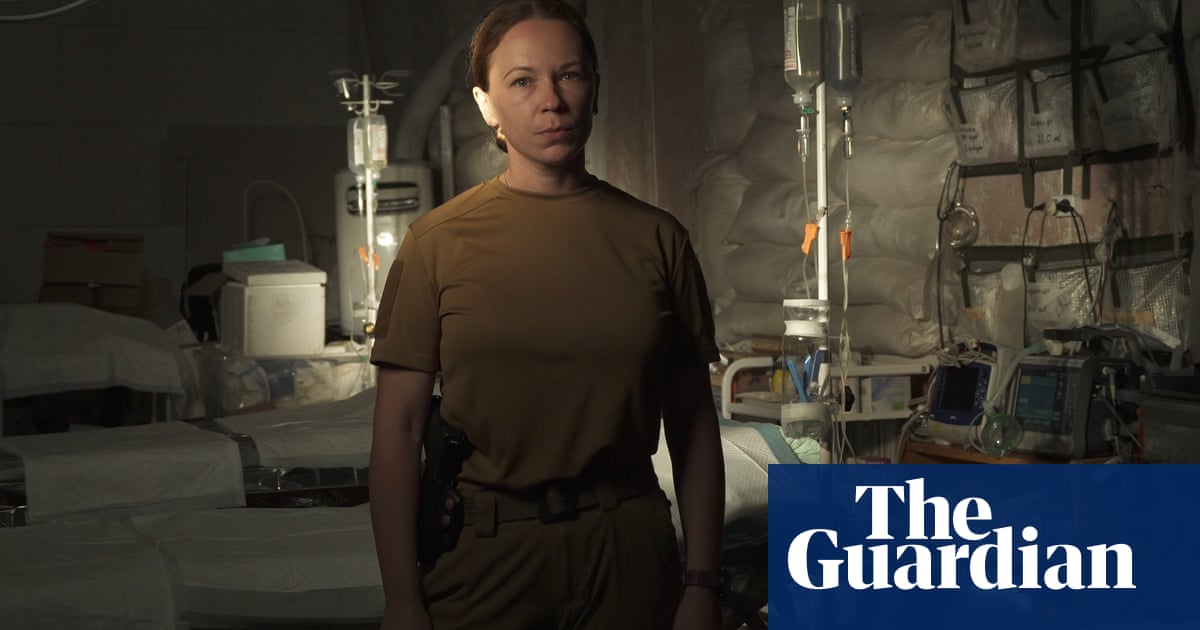It’s been nearly a decade, and three presidential administrations, since Parks and Recreation aired its final season. In that time, the sunny comedy about local government has become a modern classic. It’s also become a time capsule for a certain Obama-era mindset: its relentlessly upbeat protagonist, Amy Poehler’s Leslie Knope, wholeheartedly believes in government’s power to make people’s lives better. In 2009, its optimism was contagious.
The show concluded in 2015 after seven delightful seasons. In the intervening years, many observers – including the show’s co-creator, Michael Schur – have described Parks and Recreation as the product of a different time. America’s recent re-Maga-ning has made that assessment even more trenchant. In its time, Parks felt like a small-town sitcom; in 2024 it can feel like a fantasy.
That’s not lost on Jim O’Heir, AKA Jerry Gergich, the show’s hapless target of office mockery. As co-host of a three-year-old podcast about the show and author of a new book, Welcome to Pawnee: Stories of Friendship, Waffles and Parks and Recreation, O’Heir has become the show’s unofficial chronicler. “It doesn’t feel like a hopeful time, and if Parks is nothing else, it’s hopeful,” he says on a recent afternoon in Los Angeles. But “this is the first time in my life I have felt there’s no light at the end of the tunnel”.

Still, he acknowledges nothing is cut and dry. Knope, who begins the show as a low-level official and rises through the ranks, would give the incoming administration a heart attack: she’s dangerously empathetic, loves bureaucracy, wants to solve everyone’s problems, and idolizes Hillary Clinton. Yet when O’Heir was recently at the office of a Trump-linked senator, raising money for a charity, he was stunned. “They were so excited that I was there – ‘Oh my God, it’s the best show!’” he recalled the staff saying. “Parks and Rec, I think, is the opposite of what your agenda is, and yet you call it one of the greatest shows of all time.” Leslie Knope seems unlikely to replace the late, great Hannibal Lecter among the president-elect’s role models, but perhaps there’s still a glimmer of hope.
And if the show’s political sensibility is a product of its time, as a comedy, it’s as relevant as ever – not least for the careers it helped to launch, including those of Aubrey Plaza, who plays the apathetic April Ludgate; Chris Pratt, as Andy Dwyer, the would-be Eddie Vedder with more heart than brains; Nick Offerman, as Ron Swanson, the uber-masculine libertarian prepper who prefers carpentry to government work; Aziz Ansari, as Tom Haverford, the image-obsessed serial entrepreneur; and Adam Scott, as Ben Wyatt, the geeky but down-to-earth fiscal realist. As with any onscreen character, O’Heir says, there are elements of each actor in their roles. Poehler is as thoughtful as Leslie; after Trump’s election, O’Heir thought it might be the wrong time to do a joint book event and considered canceling. But “she goes: this is exactly the right time to do this. Let’s [help] some people have some fun.” Offerman, though no libertarian, runs a woodshop; Ansari’s phone addiction forced the creation of the Aziz memo, a ban on phone use on set.
O’Heir claims to be the least like his character in real life. He may not be, as Ron puts it on the show, both a schlemiel and a schlimazel – the guy who spills coffee and the guy who gets coffee spilled on him – but, as the book reveals, he did experience an incident on camera that mirrors Jerry’s life to an alarming degree.

“Pratt and I had gone out to dinner. I got food poisoning. I call him at, like, 7am: ‘How are you feeling?’ ‘I’m good, what’s wrong? ‘Dude, I’m dying.’” But they were shooting on location that day, with hundreds of people on set, and he was in the script: “You can’t just not show up,” he says. So he showed up – with predictably unpleasant results in a take that made the final cut.
It may not be a Britney Spears-level behind-the-scenes revelation, but it’s among several intriguing stories O’Heir shares, most of them less disgusting. Alongside O’Heir’s own narration, the book contains interviews with Schur, his co-creator Greg Daniels, and an array of cast members.
Among the stories: Daniels and Schur were so determined to have Poehler anchor the show that they gave up one of the most coveted slots on American television: following the Super Bowl. The show’s premier was supposed to come after a post-Super Bowl episode of The Office, but Poehler was due to give birth when shooting would have started. “There is no one else who could do this,” Schur remembers saying. “This is just Amy Poehler; it just has to be.” They told NBC they’d let the slot go, and three months after Poeher gave birth, they began shooting. It was, Schur says, sacrificing the short-term gain for the long-term one.
And it paid off. The show was never secure in terms of ratings: “When I say we worried, I mean, we were sure we were being canceled,” O’Heir says. (In fact, as he relates in the book, he has heard the show was canceled by executives during a flight – by the time they landed, they had changed their minds.) But once the show hit its stride, its cultural impact was never in doubt. Barack Obama was a fan; Michelle Obama, Joe Biden and John McCain made cameos. Ansari and Retta (AKA Donna, known for brutal honesty and a love of the finer things in life) brought the world “treat yo self”, a license for self-indulge. Ron Swanson has become a moustachioed icon.
As for O’Heir, as a longtime character actor, he’s been on every show from ER to Better Call Saul. But he knows he’ll always be seen as Jerry, and he’s fine with that. “I will be Jerry for ever,” he says. En route from Austin last weekend, O’Heir got randomly selected for a search at airport security. “Classic Jerry,” said a nearby stranger.

But while the characters poked ruthless fun at Jerry, that behavior was the exception rather than the rule. As Daniels says in the book, a TV show “generally goes in the direction of greater love between its people”, and indeed the characters on Parks are flawed but fundamentally goodhearted people.
That love extended off screen, with a genuine affection among cast and crew that O’Heir says he’s never seen matched. “I’ve been on a lot of shows, and I’ll see these people on Colbert or one of the Jimmys or Seth: ‘Oh, we’re one big, happy family.’ And I’m thinking: ‘I was on that set, you are lying to his face.’” But with Parks, “I get effusive about the show because it really was different.” The cast remains close nine years later, attending each other’s parties, working on each other’s projects, and maintaining an active group chat.
If Parks and Rec’s positivity feels less than realistic today, that underlying warmth – among the characters and the actors themselves – remains a balm. “Look at the Leslie Knope character,” O’Heir says. “It’s all about finding the goodness. And she has her enemies, yeah, but she’s always hopeful.
“The legacy is you can sit back and watch people who cared for each other and cared for the people around them in their city. It’s comfort.”
-
Welcome to Pawnee: Stories of Friendship, Waffles and Parks and Recreation is out in the US on 19 November from HarperCollins

 3 months ago
63
3 months ago
63













































